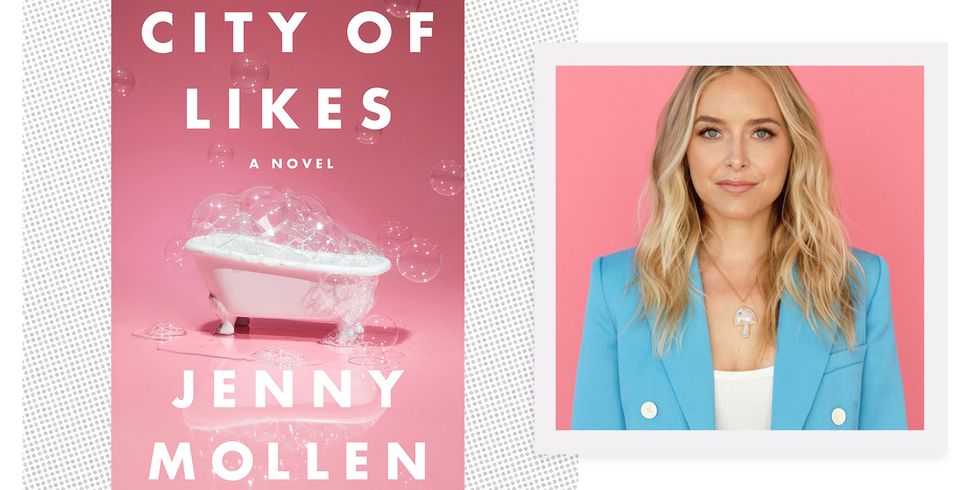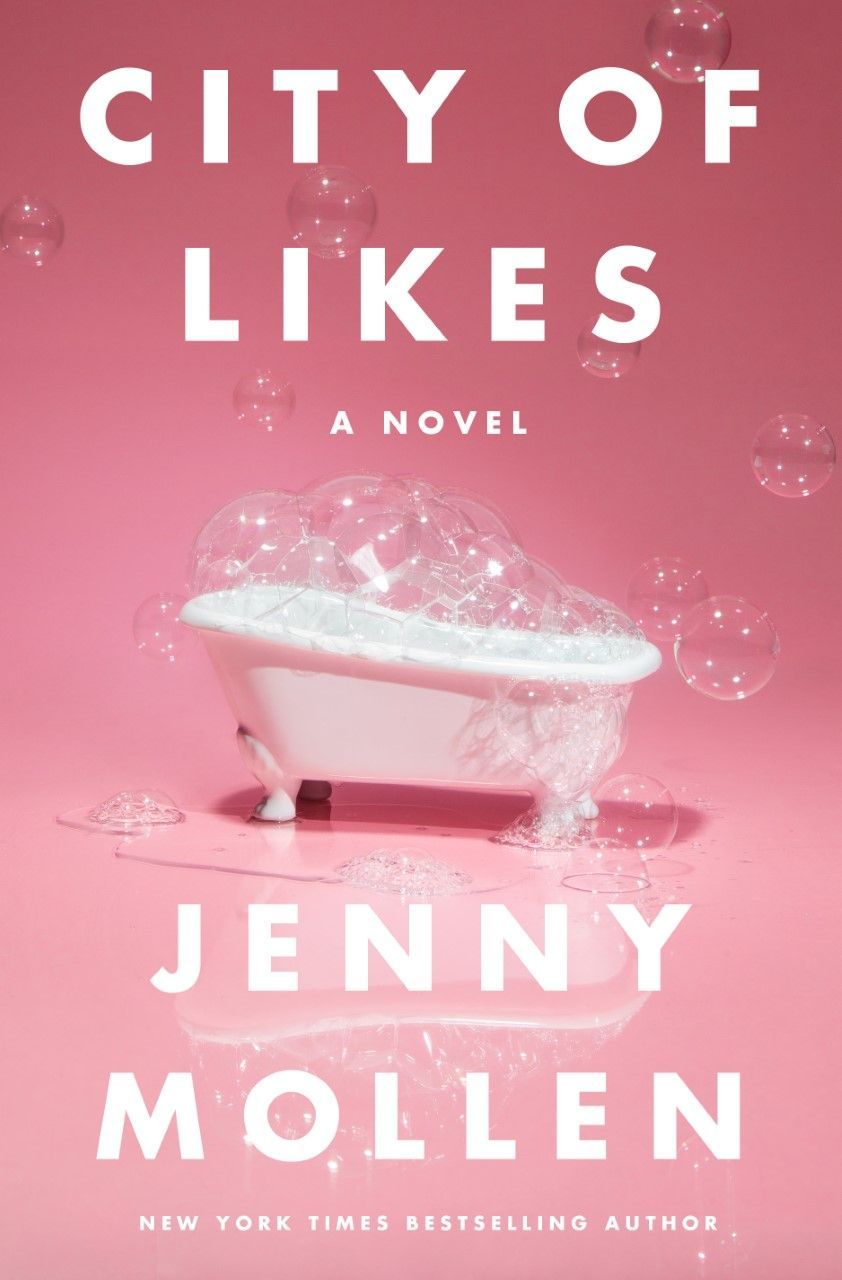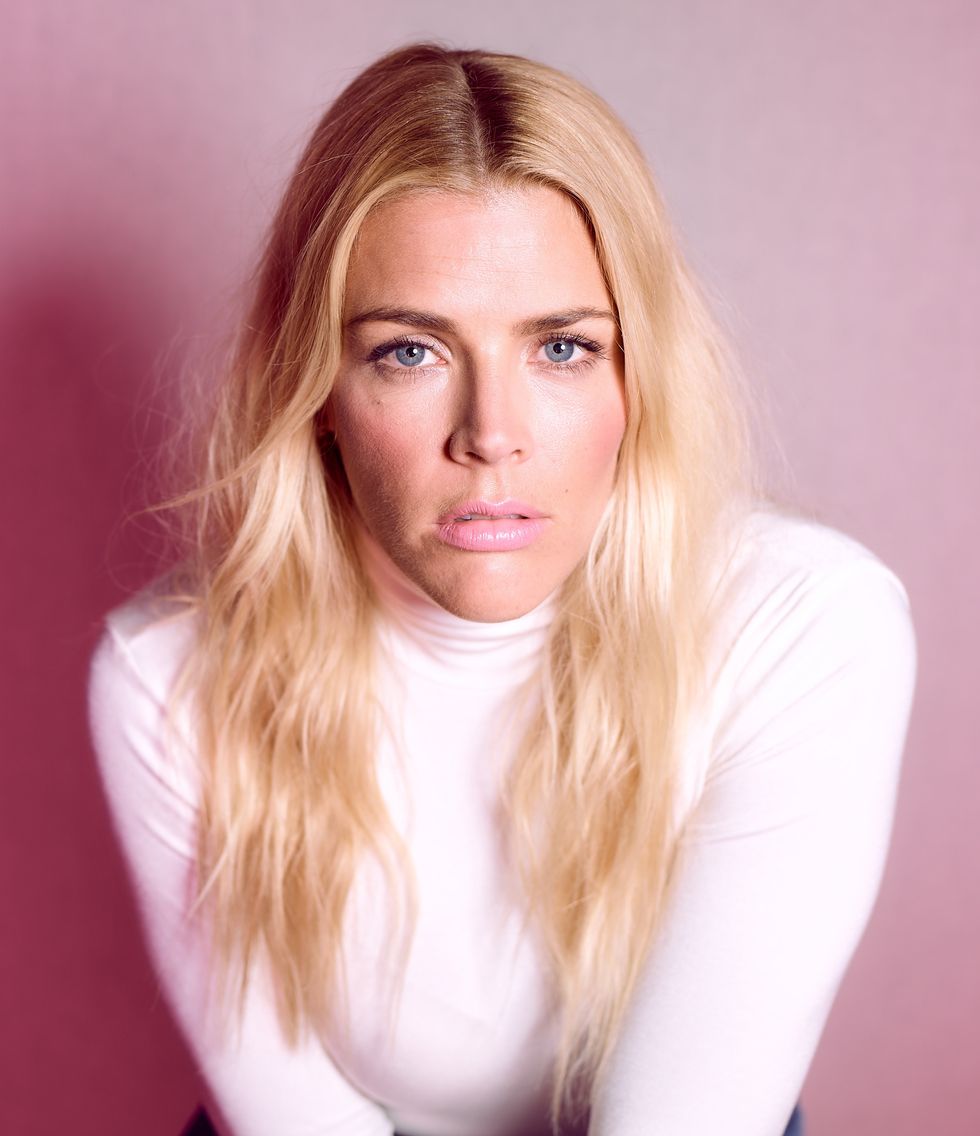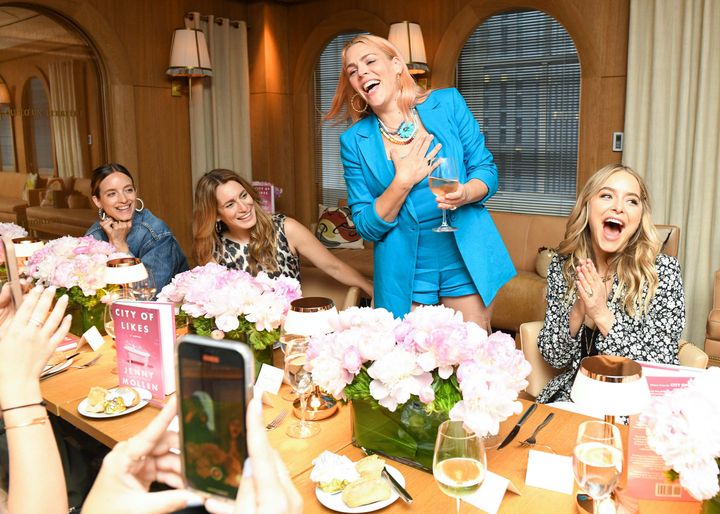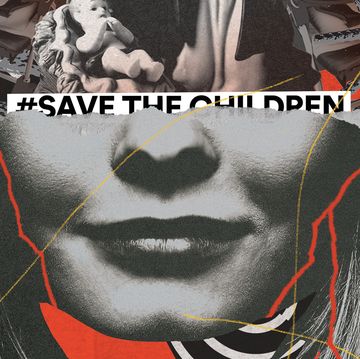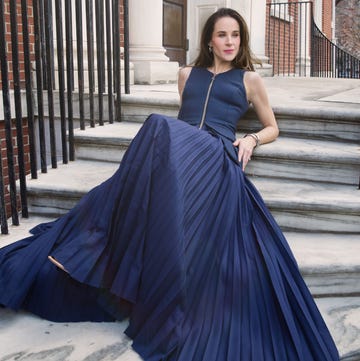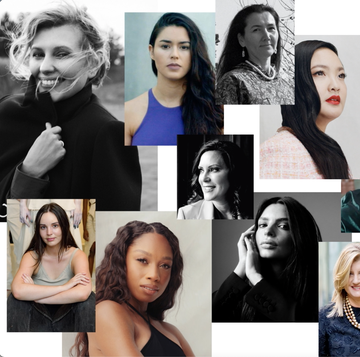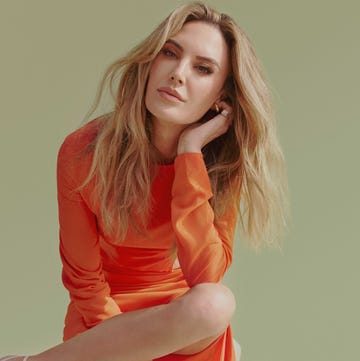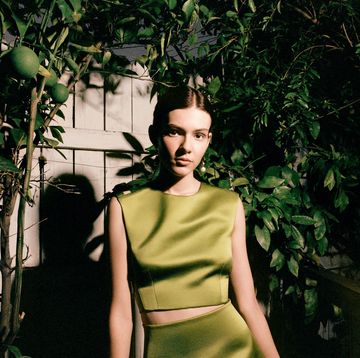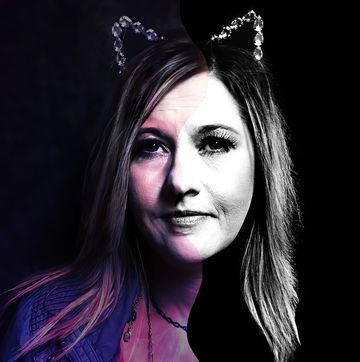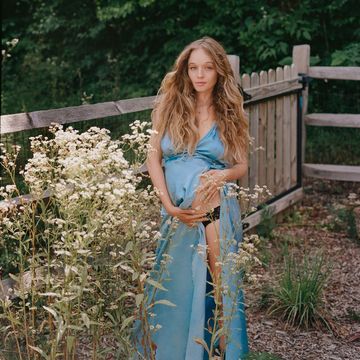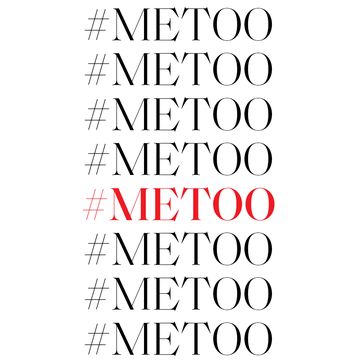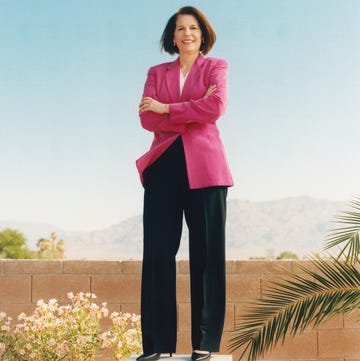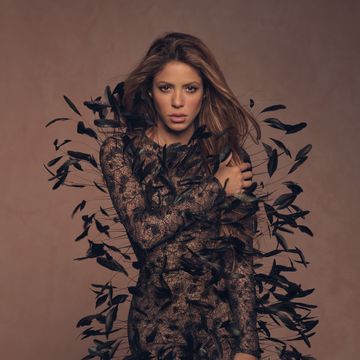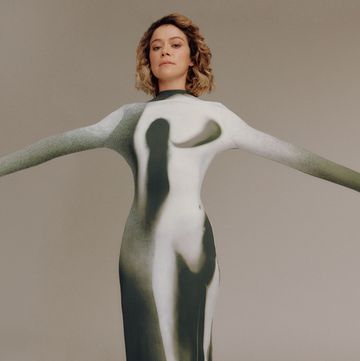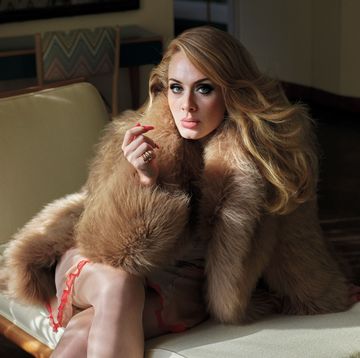“If you want it, you make it happen,” says Jenny Mollen. “You fucking fight.” True to her words, the writer and actress didn’t take no for an answer when it came to releasing her first-ever novel, City of Likes. In fact, she spent the bulk of the past four years shopping out the social media-centric satire to publishing houses, disappointed yet undeterred by each and every rejection letter she received. Having released two personal essay collections prior, “I don’t think anybody wanted fiction from me,” she says. “People told me this book wasn’t what I should be writing; they wanted another memoir, and for me to just stay light and funny.”
Instead, Mollen opted for dark and outrageous. City of Likes follows an out-of-work copywriter who suddenly finds herself hobnobbing with Manhattan’s top mom influencers (aka “momfluencers”). As her own follower count begins to climb, the smoke and mirrors of her elite new world begin to fade—and third-act revelations offer a twisted take on the realities behind our feeds. “This book is a story that haunted me, because it’s about all of my worst fears,” says Mollen, who shares sons, Sid, 8, and Lazlo, 4, with husband Jason Biggs. “It’s something I needed to write, almost as a reminder for myself. In many ways, it’s a confession of guilt.”
With City of Likes officially published and a TV series adaptation in the works (to be executive produced by Oscar winner Diablo Cody), it seems that her penance has paid off. And while she faced her share of skeptics along the way, Mollen’s biggest fan, Busy Philipps, always knew she’d succeed. The Girls5eva star and Mollen first met as preteens in Arizona, and three decades later, they’re still championing each other’s big wins. Here, the two sit down for an unfiltered, perfectly on-brand chat.
Busy Philipps: I’m so proud of you. I fucking love this book. It’s so good.
Jenny Mollen: It’s crazy that people are reading it now, because for so long it was just me and Jason, who had read it so many times. It’s funny when people say, “This was such a fun beach read.” I’m like, “Really? Because it scares the shit out of me!” [Laughs.] It’s about something that was happening to me, and I have a tendency to write about things that are happening to me. Even with people that work for me, I’m like, “You’ll become a character in my stories. Can you sign this NDA that says you won’t say anything about me, but I can say anything I want about you?”
BP: Wait, I feel like I’ve said that it’s a beach read… [laughs.]
JM: I mean, I get it. I’m flattered! But you see the depth to it, too. When it comes to social media, you know the beast and the machine of it all.
BP: And how tempting it can be—especially for all of us Gen X women. External validation is our lifeblood, you know? Or at least it has been, historically speaking. It takes more work, almost, for us to realize that these things aren’t real.
JM: Yes. Because we had Baby Boomer narcissist parents, and all we want is love and attention. So now we’re really fucked. It’s popping up on our screen and we’re being fed all of this shit. We’re all addicts.
BP: I don’t think we’ve ever talked about this, but I’m friends with the writer Ada Calhoun, who wrote Why We Can’t Sleep. It’s a non-fiction book about Gen X women and sort of our general dissatisfaction [laughs]. But one thing I read that’s super interesting is that the largest, most frequent users of social media are Gen X women. Like, our generation is the most addicted.
JM: We are. And I had to call it out, because if I didn’t, I was gonna become it. I needed to point a finger and say, “This is not the path that I want.” Not to spoil the ending, but it was really important for me to end on this note to my kids of, “I choose you.” Like, I’m choosing you over that. It’s something that I think about every day.
BP: To be fair though, even when I consciously put my phone down for three hours and I’m with my kids, just undivided [attention], the minute I pick my phone up, they’re like, “Ugh, you’re always on your phone!” [Ed note: Philipps shares Birdie, 14, who identifies as non-binary, and daughter Cricket, 8, with husband Marc Silverstein; the pair recently announced their separation.]
JM: They know it’s the guilt that we’re carrying around, too. They can play us like little Stradivarius [violins].
BP: It’s true. Birdie’s 14 and doesn’t even want Instagram. At a certain point, I came up with rules for myself about social media, so when I do share stuff about my kids, they have approval. But it’s different for everybody. I started sharing Birdie on Instagram before it was even really a thing. I know this sounds like we weren’t being considerate or something, but it didn’t seem like a big deal at first. What you choose to share publicly is so deeply personal. I think people get off track when they think there’s some hard and fast rule, or that they’re going to benefit from oversharing.
JM: Yeah, I could never show the kids [on social media]. It’s just scary to me—I’m a very paranoid person and I’m afraid of a lot of things. I have friends that do post their kids, and sometimes I’m like, “Oh, well, this person lives in L.A.” Maybe I’d feel differently if I wasn’t in a city where you could walk into a park and be like, “Oh, that’s Sid or Lazlo Biggs.” You have so much access to people in New York City, so when it came to sharing the kids, it was a hard no from the get-go. In L.A., nobody knows where you live, you take them in your car to their school, back into your car, and then back into your safe home. It’s a totally different lifestyle. They’re not on the subway at two years old with a nanny and a billion people.
BP: It’s interesting that you bring up the New York versus L.A. thing, because that never occurred to me. But you’re right, I bet I would’ve felt differently [if I had raised my kids in the city]. Oh, well. That ship’s sailed. Now Birdie’s got mace in their backpack.
JM: You would’ve been different here, I’m telling you. Like, I’m afraid of Uber drivers kidnapping me and killing me. I was always afraid of being molested. My mom would tell me, “You’re gonna be kidnapped and taken across the border to Mexico and turned into a sex slave if you talk to strangers.” So that’s where I’m coming from as an ’80s kid with after-school specials and gnarly shit like that. I can’t get that to turn off in my brain. People look at social media as like, “I’m just scrapbooking. I want these memories for myself.” It’s innocuous at first, and then all of the sudden you become a personality and you’re like, “Wait, fuck. Now I’m selling chips? What happened?” That is a weird thing.
BP: In the last few years, my own addiction to social media and the daily need to post has gone away. I don’t feel like I need to put stuff out there if I don’t want to. It’s interesting because I don’t have as hard of a time with the paid stuff. I think because so much of acting is just selling shit, you know?
JM: Yeah. When I’m being paid, I’m like, “Oh God, I have to jump out of this box again?!” I was an actress for years though, so I’m used to that. But something shifted for me as well. I don’t feel the same pressure to overshare that I did a few years ago. I just think we’re all damned if we do and damn if we don’t, to be perfectly honest. My kids will probably come to me one day and be like, “Why was there always a fucking flame over my head? What’s wrong with me?” I do share stuff with Jason because it’s kind of our love language. I think it’s fun to see him spiral out and binge on food. He’s my muse. In the middle of the night, I love to watch him wear a beret and talk about Emily in Paris. So I do overshare other weird shit. You would think, if you’re not showing your kids, why are you showing your husband’s balls? But for me, they’re different. [Laughs.]
BP: They are totally different. I do have to say, I think social media allowed us to have agency and our own voices in a way that the entertainment industry wasn’t really amenable to young women. We didn’t have the ability to be more than just a two-dimensional thing, and I know I always felt very hemmed in by the parts that I was up for and how I was seen. I felt like I had so much more depth and shit to say. With the advent of Twitter and then Instagram, I felt like I was able to take such control of my career and the trajectory of my forward-facing life, and not be reliant on a 300-word article about me in a beauty magazine that made me sound like an idiot, you know? As an actor, it used to be that you were at the mercy of the person writing the article about you. I’m a writer, you’re a writer. People bring their own things into every single interview—their own ideas of who they want you to be and what the angle is and what the story is. Social media allowed me to take back my own story and tell it myself. Things still get put into clickbait, which is so annoying. But we know this, and the people who are fans at this point, they will dig deeper [to find the truth]. And the people who don’t give a shit are still just going to read the clickbait and comment “eye-roll emoji, who is this?” It’s like, well, why’d you read the article? Like, I don’t know what to tell you!
JM: Right. I also think that at this point in life—and I don’t know if it’s just moving through the industry or a coefficient of age—but comparing myself [to other women] has gotten me nowhere. I really just have to focus, and honestly, I don’t have the time to compare myself to anyone because I’m too busy trying to raise two human beings. So that’s also a great remedy for getting you out of your own head.
BP: It is really hard, though. Even with all of the therapy and the age and the wisdom, I do still find myself occasionally scrolling on Instagram and being like, “Why is she always on vacation? How can I always be on vacation? I wanna be on vacation more.” And it’s like, “Well, she’s choosing to show you that.” Then I’ll see that from someone I know and I’m like, “Wait, she’s not on vacation right now. What the fuck?” Although in the past few years I’ve actually started holding my vacation pictures, too. Do you do that?
JM: Of course. I wait until I leave the place because I’m afraid everyone’s trying to kill me.
BP: Yeah, it took me a while to realize the safety component of it all. Like, oh, maybe posting Instagram stories of where I am in that moment isn’t the move. But I was always just like, “Who would even want to kill me?” [Laughs.] Then once I started talking about abortion stuff and my abortion [at 15], it turned out that a lot of people want to kill me.
JM: I do think that we have an obligation to do that, though. I know people are buying sweaters that I’m telling them to buy, so I better fucking tell them how to vote, whether it lands or not. Especially now with all of this gun safety stuff, as a mother, I feel a moral obligation to say something about what kind of fucking third world country we’ve devolved into. If I didn’t say it, I would be such an asshole fraud. How pathetic would it be if all I used this platform for was to further my own personal brand? I don’t want to name names, but I’ve seen a lot of people who don’t say anything about what’s going on in the news when they’re in the middle of a campaign for something. They’re like, “I don’t wanna lose followers.” Meanwhile, I’m like, “Bye!” I’m ready to lose followers. I don’t give fuck. I’m not gonna stop talking about the things I believe in just because I want you to buy my book. Like, don’t buy the fucking book; just vote for gun safety. At the end of the day I’m a human being who has kids in this world, and there are things that are more important than my fucking career.
BP: I think it’s really fucking weird when people do it only when they’re not in the midst of like promoting something else. Influencers do wield a certain amount of power. You have people looking to you for all kinds of information—what you’re eating, what you’re wearing, how you’re working out, and the issues that maybe we should be paying attention to. Just like there’s too much TV to keep track of all the good shows, there are so many pressing issues right now in this country and around the world. I think people occasionally get a little bit lost and don’t know where they should focus or how to take action. Personally, I’ve found it helpful to follow activists who talk about actions we should be taking today. And then if I can amplify that, obviously I want to. Why wouldn’t I? It’s strange to me that anyone wouldn’t.
JM: If you’re quiet, you’re complicit. End of story. Everything that you’ve been doing with abortion rights is absolutely astounding. It’s so necessary and incredible that you’ve been willing to put yourself out there and go to Washington [and testify before Congress in 2019]. These are things that somebody in your position wouldn’t always do. It’s alarming and scary, but you’re putting [the issue] before yourself and your career. I’m sure it also impacts the branding deals you’re getting and the kind of money coming in. But it’s a fight worth having, and it’s such a noble and selfless act. I think it’s fucking incredible.
BP: That’s really sweet. I have to say, one thing that surprised me was that I actually did not have a dip in brand interest or opportunities. I thought there might be, but there wasn’t. In fact, I’ve been involved in some of these behind-the-scenes conversations with brands and agencies’ marketing directors who are asking about activism. Brands are becoming more aware that it’s important to take stands on things like gun violence, responsible gun laws, voting rights, bodily autonomy, and making sure that equality is for everyone. They’re like, “How do we get into that conversation without it seeming like lip service or just putting a flag up for the month?”
JM: Right, or putting a black square up on their Instagram and that was their contribution. How fucking amazing is it that Starbucks is like, “If you work for us, we’ll fly you to another state if you need an abortion.” That’s so ballsy and amazing. I was like, “I love you guys. I don’t know why I ever worked at Coffee Bean. I should have always been a Starbucks girl.” [Laughs.]
BP: When did you work at Coffee Bean? We need to discuss that. If I wasn’t me, I would roll my eyes right now [at what I’m about to say], but I do think we are all storytellers at our core. Throwing a graphic up is wonderful, but if you can tell a story and connect with people on a personal level, that’s how you really engage and change people’s hearts and minds. There is so much divisiveness in the country, but one thing that was really successful—if you can call it that—when I talked about my abortion was how simple it was. I just wanted people to know that if you think you don’t know a person who’s had an abortion, you do. Because one in four women will have an abortion before the age of 40, and I’m one of those people. It doesn’t matter why; it doesn’t matter when. I’m just saying that this affects people that you know and love. So I do think there is value in going deeper than putting up a graphic. From my perspective—being an actor and a writer and a podcaster and all of these things for so many years—I’m interested in the personal and the connection. It’s about how I can connect with someone who really feels a different way and ask them to see the humanity in the things that I’m talking about.
JM: Exactly. And I also think it’s so important for kids to see their parents fight for things. Growing up, I felt like my parents were superheroes. My dad is a larger-than-life personality, and I was oftentimes just like, “How will I ever be good enough?” I think my kids suffer a similar thing, just by the nature of the fact that we walk down the street and somebody knows who their dad is. I remember what that felt like, and it doesn’t feel fucking good. Not that I’m…well, I guess I am projecting onto them. But with this book, when I was first rejected by six big publishing houses that I had worked with in the past, my son Sid was four. He was like, “I’m sorry nobody liked your book. What are you going to do?” I told him I was going to just rewrite it, and I did. I took it out again a year later, but then the Capitol was being stormed. It was a terrible time to try and sell a book about wealthy white women in lower Manhattan [laughs]. Sid asked, “What now?” And I told him, “There is no stopping. I’m gonna stay on the horse, and you will too.” He has that resolve and resilience to him, too. When he falls down, I’m like, “Get back up and do it again.” He’s seen me fight so hard for this book, and I really want to share in this moment with my kids. Although right now, I’m ready to take a break and not give a fuck what comes next.
BP: It is so important for kids to see that their parents aren’t just magical unicorns who everything comes easily for—especially in a creative industry. Okay, now we need to go talk offline about how we can help my kids not hate the fact that I’m their mom. [Laughs.]
This interview has been edited and condensed for clarity.
Samantha Simon is a writer, editor, and pop culture enthusiast living in New York City. She previously served as Features Editor at InStyle. If she’s not in the middle of a Law & Order: SVU marathon, she’s probably on a 4-mile walk with her Cavalier King Charles Spaniel, Dexter (named after the fictional vigilante serial killer, naturally), shopping, or searching for the best cacio e pepe that the city has to offer. Her favorite topics include celebrity memoirs, emo bands of the early aughts, and the weekly Sakara Life menu.
